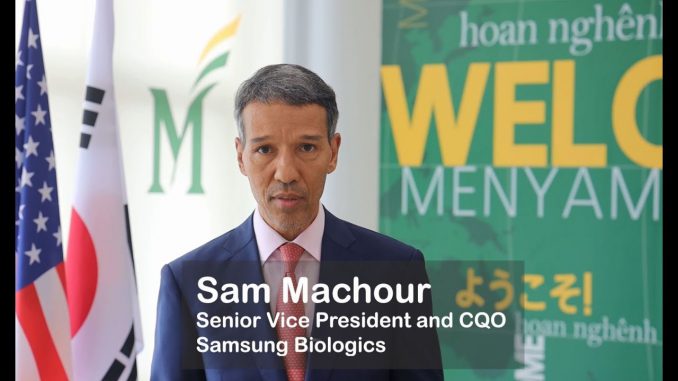
In four to five years, Morocco will be an “indispensable player on the international scene in terms of vaccines” thanks to the implementation of the project of the manufacturing and syringing unit of anti-Covid vaccines and other vaccines in Morocco, the launching ceremony of the realization works of which was presided over, on Thursday in Benslimane, by King Mohammed VI, affirmed, Friday, the international expert in industrial biotechnology, Samir Machour.
This strategic project will allow the Kingdom, by 2030, to acquire the necessary scientific capacity in the field of research and development, which will allow, with the contribution of our universities and institutes, to develop relevant training, and thus lay the foundations of an eco-system of the vaccine industry, Machour stressed in an interview with MAP.
The establishment of this ecosystem is the ultimate goal to which Morocco aspires in accordance with the enlightened vision of King Mohammed VI, which will allow the achievement of the Kingdom’s health sovereignty, stressed Machour.
Stopping on the details of this vaccine manufacturing unit, the international expert indicated that this project, which includes an industrial part and another related to research and development, is divided into three stages of which the inauguration of the manufacturing unit is the first.
This first stage aims to provide Morocco with a production capacity for syringing and packaging vaccines locally, he explained, adding that this stage will be ready by the end of 2022, with the launch of production of test vials at the end of July.
Morocco will have, by the end of 2022, a production capacity of 160 million units, i.e. 600 million doses (with an average of 5 doses/unit), said the expert, specifying that this production capacity will make it possible to cover the Kingdom’s vaccine needs.
By 2025, this capacity will be increased to 900 million units, or 6 to 9 billion doses, which could cover the world’s needs in vaccines, and will position Morocco in the 2nd or 3rd place worldwide in this field, the expert continued.
Regarding the second stage, Machour explained that it concerns the manufacture of the raw material, i.e. the vaccine itself, while the third stage (by 2025) concerns research and development and aims to create vaccines and biotechnological products that are specifically Moroccan.
This project goes far beyond the Covid-19 pandemic, and aspires to the manufacture of various vaccines, the expert pointed out, underlining the possibility of manufacturing the majority of vaccines in Morocco after the completion of this project.
By 2023, the Benslimane plant will contribute to the manufacture of 60% of the vaccines used in Africa, which will have a positive impact on the continent, and will help guarantee its vaccine sovereignty, he said.
Putting this into perspective, Machour recalled that 85 per cent of the continent’s population has not yet received doses of the Covid vaccine, adding that the vaccines used in Africa come from UNICEF and the Global Alliance for Vaccines and Immunisation (GAVI).
The continent has realised, he continued, the importance of ensuring its health sovereignty when the pandemic breaks out. In this sense, Machour said, the establishment of the vaccine manufacturing and syringe unit project is in line with the spirit of the African Centre for Disease Control and Prevention, which aims to achieve vaccine independence for the continent by 2040.
The international expert also considered that this project will strengthen the strategic and economic presence of Morocco in the continent because it will strengthen the Kingdom’s trade with sister African countries, and will make Morocco the main exporter of vaccines to these countries.
Furthermore, Machour noted that the pandemic has confirmed the importance of public/private partnership. No single party can meet the health needs of the population, he argued, adding that the Benslimane unit is the first successful example of a public/private partnership in the vaccine industry.

Be the first to comment